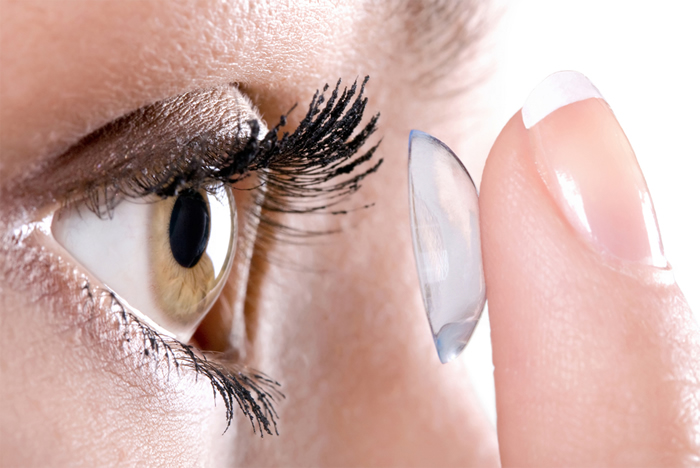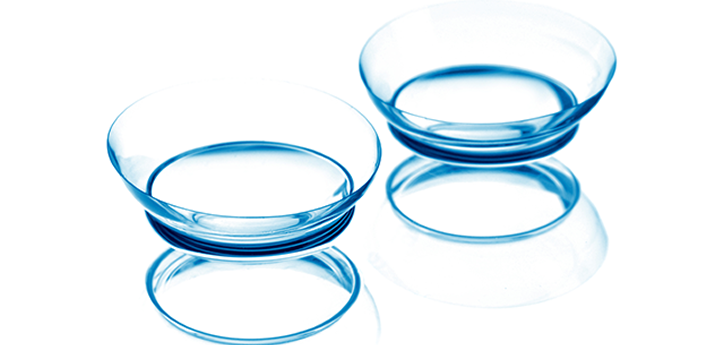For those people who require vision correction but don’t want to use eyeglasses every time or undergo LASIK surgery, then contact lenses are the best choice. In 2014, nearly 40.9 million Americans aged 18 years and older wore contact lenses. According to the U.S. Center for Disease Control and Prevention (CDC), this was nearly 17% of the U.S adult population. Moreover, many children start using contact lenses around the age of 12! The most commonly used contact lenses are:
- Rigid gas permeable lenses (RGP lenses)
- Soft lenses
Contact lenses are continually becoming more useful than ever before. If they are something you are considering trying, you should know the pros and cons of each type. Whether you just want a fresh look, the freedom of becoming more active or you simply want to see without any restriction, do not worry because contact lenses provide an alternative to glasses. Below are the best contact lenses on the market today:
Soft Contact Lenses
In most countries, soft contact lenses are the most popular when compared to other types of contact lenses. Soft lenses can be worn to correct various eye problems including:
- Nearsightedness which is also known as myopia
- Farsightedness also referred to as hyperopia
- Blurred vision or astigmatism
- Age-related loss of close-up vision or simply presbyopia
- Other Corneal irregularities
Unlike rigid lenses, soft contact lenses feel comfortable and are easier to adapt to. They also come in different types, which include:
- Daily Wear Lenses. These are typically the cheapest option. They are worn during the day and removed at night for disinfection. The period of using a single pair of daily wear lenses varies depending on the manufacturer.
- Extended Wear Lenses. With these lenses, you can put them on while you sleep. They should be removed for cleaning and disinfecting at least once a week. It is, however, important to be cautious when using them at night since they increase the possibility of eye infections.
- Disposable Lenses. These lenses are more expensive. They are worn during the day and removed at night. Unlike the others, disposable lenses do not have to be cleaned or disinfected. You can only use them for a recommended period of time – such as daily, weekly or monthly – and dispose of them. They are the best option if you can’t stand the disinfecting solution, if you wear contacts only on certain occasion or if you just find them convenient.

Source: lyonsfamilyeyecare.com
Hard Contact Lenses
Rigid, gas-permeable lenses or simply hard contact lenses usually provide a clear, crisp vision for several vision problems. They might be appealing if you have tried soft contact lenses and found them unsatisfying or if you have “dry eyes.”
Hard contact lenses are more breathable than the soft contact lenses reducing the probability of getting eye infections. Most hard contact lenses require being removed, cleaned and disinfected at night. There are others that can be worn for seven or even 30 days.
It may take a few days or a few weeks for you to adjust to hard contact lenses. If your prescription does not change and you take good care of your hard contact lenses, you can use a pair of lenses for a maximum of three years.
Specialized Contact Lenses
You can use specialized contact lenses depending on the needs of your eyes. Specialized contact lenses include:
- Hybrid Contact Lenses. They feature a hard, gas-permeable center surrounded by a soft outer ring. These lenses can be used to correct farsightedness, astigmatism, nearsightedness and age-related loss of close-up vision. They can also be used on irregular corneal curvature (keratoconus). If you have trouble wearing traditional hard lenses then you consider trying them.
- Bifocal or Multifocal Contact Lenses. They are available in both the soft and hard varieties. They can be used to correct farsightedness, nearsightedness, and astigmatism in addition to an age-related loss of close-up vision (presbyopia).
- Tinted Contact Lenses. Due to cosmetic or therapeutic purposes, some contact lenses are tinted. Tinting can improve contrast and color perception and therefore help in compensating colorblindness. However, over-the-counter contact lenses should be avoided as they can cause eye injuries and infections.
Find the Right Fit
An ophthalmologist or any other eye care specialist should be consulted and a thorough eye examination carried out before getting the right type and size of contact lenses. You should also go for the scheduled follow-up exams as recommended by your specialist. A follow-up exam might be required after a week, a month or after six months or at least once a year. By attending these exams you can be sure to find the best contact lenses for you.
Avoid Complications
Some of the problems associated with wearing contact lenses range from discomfort to severe infections. In order to the prevent problems you should do the following:
- Practice good hygiene. Your hands must be clean when handling your contacts.
- Remove your contacts before you go to sleep. This also applies to extended wear contacts. Overwearing your lenses can increase the risk of eye infections even though some contacts are designed to be worn overnight.
- Minimize contact with water and saliva. When swimming or using a hot tub, you should remove your contact lenses. You should also not put them in your mouth.
- Take care of contact lens solutions. You should only use commercially prepared, sterile products meant for the type of contact lenses that you use. Dispose of the solution in the contact lens case after you disinfect the lenses. Gently clean your lenses as directed by your specialist. Do not use expired contact solution
- Replace contact lenses and cases as recommended. Manufacturer guidelines for replacing your contact lenses must be with the product. You should clean your contact lens case pretty regularly. Flip over the case while it is air-drying to remove any excess solution. Replace the case after every three to six months.
Dry eyes can be an issue for contact lens wearers even if they use and take good care of their lenses. In case your eyes are itchy or red, you should remove your contact lenses and use lubricating eye drops.
You should also remove your contact lenses and consult a specialist for prompt treatment if your vision becomes blurry, sensitive to light, has a discharge/swelling or you experience eye pain.
Featured Image Source: delfamilyeye.com
Posted on May 18, 2023



